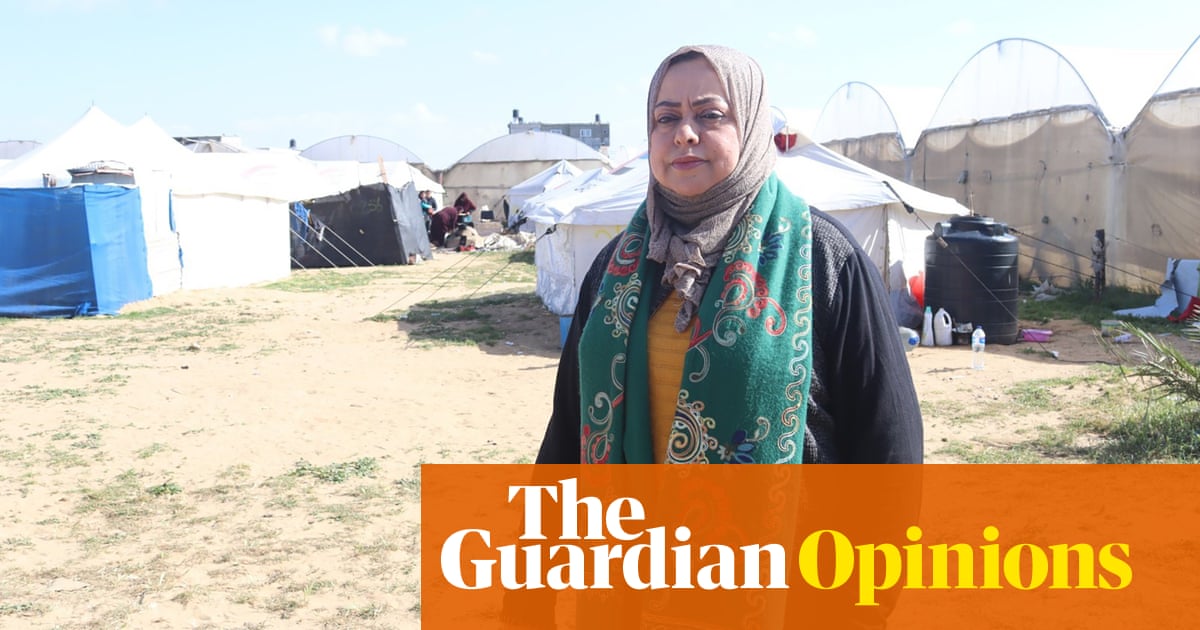I will not hide from you that I suffer from anxiety. Like most humanitarian workers, I can’t sleep. I can’t have sound, uninterrupted sleep as a result of the fear. Fear haunts us in every step. I am one of the founders of the Wefaq Association. Since 2010, the most important work we do is provide protection, economic, legal and psychological support, for women who have been victims of violence and for children at risk.
As the war in Gaza began, I continued to work due to my belief in women’s rights as human rights. This is what inspired me in the first place and is the reason I continue. We face big challenges, especially for us as women, going out to provide humanitarian aid. We live in a state of tension. When we leave the house, we entrust our home and our children to God: only God knows if we will be returning to them.
Our work exposes us to many violations and a feeling of disbelief. Imagine that you are going to help people but you think that you will not return to see your children and loved ones. This is a terrifying feeling that makes you live in conflict: between protecting yourself and your family, and your humanitarian duty that requires you to go out and help.
On a personal level, I’m a resident of Rafah, and in our house we were hosting 30 to 35 people who had lost their homes, and each person was in a different psychological state. Our home was also the centre for the association because we cannot go to an office, so the administrative work was done from my house, and this led to mixed feelings around duty and responsibility – and also panic, especially since the occupation was targeting those providing humanitarian services.
At every moment, I expected that they would bomb the house. After the sixth month, I was overcome by fear for my children because of how much we see outside and on TV. This forced me to leave, to go to Egypt with my daughter and secure a place for the rest of the family to follow. But the invasion of Rafah happened before my young sons came from Gaza to Egypt. This is my fifth month without them and I feel unbalanced because half of me is in Egypt and the other half is in Gaza, especially after the invasion of Rafah.
My children and husband were forced to go to the Mawasi area in Khan Younis to live in tents. This is very scary. A month ago, my house was completely destroyed. This house was a dream of a lifetime and it is gone. We have payments due from the price of the house, and I will continue to pay the debts for the next five years. It is difficult to feel that you have lost everything. This is the feeling of every person in Gaza who has lost their house, their dream, their loved ones.
Sometimes, when I was in the field, houses and cars were bombed, 300 metres away from me. Wefaq volunteers told me of the sexual abuse and assault on women being displaced from the north to Rafah. When we saw young men being buried alive in the cemeteries in Khan Younis; we feared our children would face the same.
We have suffered what we have suffered during 11 months. To say that the women of Gaza are steadfast and to send an image to the world that we are a legend and that we are more capable of steadfastness would not be true. We are only steadfast in front of our families and children so that they do not collapse, but we are being destroyed internally. The women of Gaza are physically exhausted, psychologically broken.
after newsletter promotion
The woman feels that she is responsible for her children and brothers, and thus bears the greatest burden of feelings and psychological pressure. She tries to make others feel safe. The women of Gaza, as much as we are steadfast, are confused, fatigued; the need for women to seek psychological support has increased in the past two months because women can no longer bear the pressure.
In this war, women have lost their privacy, their dignity and their humanity. Some of them have been subjected to sexual attack and sexual harassment, some of them have been subjected to obscene abuse, some of them have lost their husbands, their sons, their brothers. Some of them have lost everything. They have lost their entire family and their sources of livelihood and have become completely dependent on others.
In Gaza we hear about negotiations but we have little hope a truce will happen. We are caught between the jaws of Hamas and the occupation. Each wants to serve its own interests, and the people are the last thing they think about. We have no solutions except a miracle from God. As for the international and regional solutions to stop the war, they are useless. If there were sincere intentions to end the war, it would have stopped after the first month, but it seems like a conspiracy against us in Gaza and against our Palestinian people.
We want to live a normal life among our children in safety, planning for the future. As women of Gaza, we have been completely destroyed psychologically. We have no dreams, no hopes. We only wish to stay alive: us and our children.
To women all over the world I say: form alliances and raise your voice loudly in order to stop the war and to respect human dignity.
